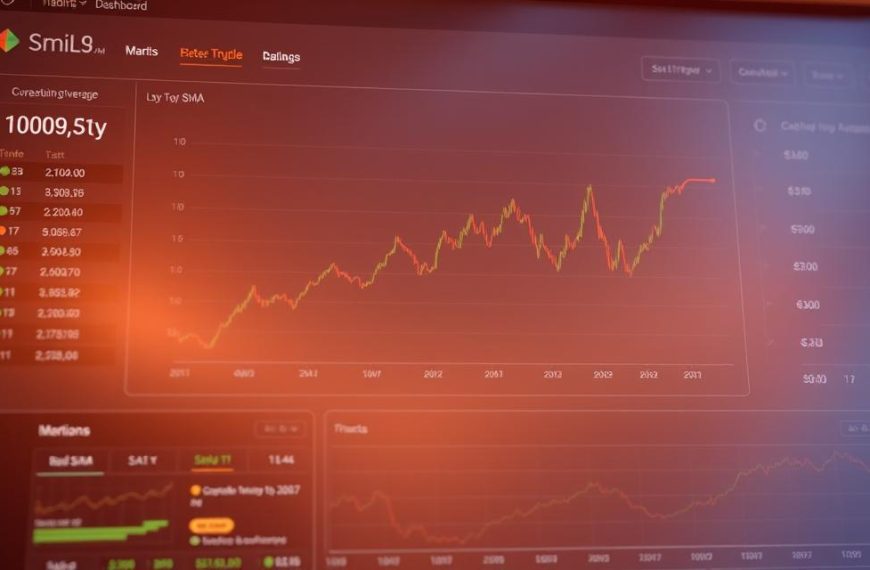Cryptocurrency taxation is a complex field with evolving regulatory frameworks. Digital assets have revolutionised financial markets, challenging traditional investment rules. The interplay between crypto taxation and wash sale rules is a hot topic of debate12.
Crypto trading comes with significant risks for investors. Government agencies are increasingly scrutinising these transactions. Recent developments suggest a push for clearer guidelines on digital asset investments312.
Investors must stay alert to the ambiguities in wash sale rules for digital assets. The current regulatory landscape presents both challenges and opportunities. Understanding these nuanced rules is vital for making smart financial choices12.
Understanding Wash Sale Rules in Traditional Markets
Wash sale rules are vital in preventing tax-motivated transactions in traditional securities markets. These regulations are crucial for investors to understand when implementing tax loss harvesting strategies.
Defining Wash Sale Rules
Wash sale rules restrict investors from claiming capital losses on quickly repurchased securities. Tax code section 1091 prohibits loss claims on substantially identical assets bought within 30 days4.
This applies to assets acquired before or after selling the original investment5. The rule aims to prevent artificial loss generation for tax benefits.
Historical Context and Implementation
These rules were created to stop investors from manipulating tax benefits. They discourage strategic buying and selling of securities solely for tax purposes.
| Rule Aspect | Details |
|---|---|
| Timeframe | 30 days before and after sale |
| Applicable Assets | Stocks, securities, options |
| Purpose | Prevent tax-motivated transactions |
Application to Traditional Securities
Traditional securities face strict wash sale regulations. Investors must carefully track their transactions to comply with tax guidelines. The rules target:
- Stock sales
- Securities transactions
- Options trading
The Tax Court has offered nuanced interpretations of these rules. In the Gantner case, they clarified that stock options might not always be “stock or securities”5.
“Understanding wash sale rules is critical for maintaining tax efficiency in investment strategies.”
The Current State of Cryptocurrency Taxation
Crypto tax rules in the UK are changing fast. HMRC is creating new guidelines for digital asset reporting. This makes things tricky for crypto investors6.
- New reporting requirements for cryptocurrency transactions7
- Expanded definition of taxable digital asset interactions
- Introduction of more comprehensive tracking mechanisms
The IRS has proposed new crypto tax rules. From January 1, 2024, $10,000+ crypto transactions must be reported6. These changes will affect how investors handle their digital assets7.
The proposed regulations bring in key changes:
- A new Form 1099-DA for digital asset dispositions7
- Specific reporting requirements for digital asset platforms
- Expanded definitions of taxable cryptocurrency interactions
Investors need to keep up with these new crypto tax rules. They mark a big shift in digital asset monitoring and taxation67.
Do Wash Sale Rules Apply to Cryptocurrency?
Digital asset regulations pose a complex challenge for cryptocurrency investors. Cryptocurrencies occupy a unique position in the financial ecosystem. They receive distinct treatment under existing tax frameworks8.
The Internal Revenue Service classifies cryptocurrencies as property. This creates significant differences in how crypto wash sales are managed. Investors can exploit potential tax loopholes by generating strategic tax losses9.
Legal Status and Regulatory Framework
The regulatory environment for digital assets remains fluid. Proposed legislation aims to transform cryptocurrency taxation. It potentially extends wash sale rules to digital assets8.
- Treating digital assets similarly to stocks and securities
- Implementing a 30-day period for wash sale restrictions
- Requiring cryptocurrency exchanges to track and report wash sales
Current Exclusions and Exemptions
Cryptocurrency transactions offer more flexibility than traditional securities. Investors can claim losses on digital asset sales without typical restrictions. This differs from stock transactions9.
The unique treatment of cryptocurrencies reflects the evolving nature of digital asset regulations.
Policy Rationale Behind Current Treatment
Policymakers are considering the implications of applying wash sale rules to cryptocurrencies. The proposed changes aim to close tax loopholes. They also acknowledge the distinctive characteristics of digital assets10.
Future regulations may require cryptocurrency trades to comply with wash sale restrictions. This could apply to trades after December 31, 20219.
Investors should stay informed about potential changes in digital asset regulations. These changes could significantly impact their trading and tax strategies.
Biden Administration’s 2025 FY Budget Proposals
The Biden Administration’s 2025 budget proposal suggests major changes to digital asset policy and US crypto regulations. These plans aim to transform cryptocurrency taxation. The budget expects to raise nearly £10 billion from crypto-related taxes.
Projected earnings could exceed £42 billion over the next decade11. This ambitious target reflects the growing importance of digital assets in the economy.
Key proposals for digital assets include:
- Applying wash sale rules to digital asset transactions11
- Expanding reporting requirements for financial institutions
- Implementing a 30% excise tax on digital asset mining
These measures could significantly impact international tax trends. Specific provisions may generate substantial revenue. Wash sale rules alone could raise about £25 billion over ten years11.
The budget’s crypto initiatives form part of a wider digital asset taxation strategy. Projected revenues include over £1 billion in 2025 from wash sale rules. Additionally, more than £8 billion could come from mark-to-market cryptocurrency regulations11.
| Proposal | Estimated Revenue (10 Years) |
|---|---|
| Wash Sale Rules | £25 billion |
| Mark-to-Market Rules | £7.3 billion |
| Mining Excise Tax | £7 billion deficit reduction |
These proposed changes represent a major shift in digital asset regulation. Investors and financial professionals should review them carefully. The impact on the crypto landscape could be far-reaching12.
Capital Losses in Cryptocurrency Trading
Crypto capital losses require clever financial planning. Digital asset taxes pose unique challenges for investors. Tax loss harvesting can help optimise their tax position.
Investors can manage crypto losses to lower tax bills. They might use losses to offset gains in other investments13. Single filers enjoy 0% tax on long-term gains up to £44,62513.
Calculating Crypto Capital Losses
Calculating crypto capital losses involves several key considerations:
- Determine the original purchase price of digital assets
- Compare the current market value with the acquisition cost
- Identify net losses across different cryptocurrency holdings14
Tax Implications and Strategies
Tax loss harvesting can help reduce tax burdens. UK rules for crypto losses are specific:
- Losses can be carried forward indefinitely15
- Losses must be reported in the year they occur15
- Repurchasing the same asset within 30 days disqualifies loss claims15
Tip: Consider initiating tax loss harvesting efforts in September or October to maximize potential benefits13.
The crypto market cap exceeds £1.9 trillion, showing a vast financial landscape14. Smart management of crypto losses can cut tax bills and boost investment results.
Digital Asset Trading and Tax Loss Harvesting
Crypto investors are using clever tax strategies to manage their digital assets. Tax loss harvesting has become crucial in the volatile crypto market16. By selling underperforming assets, investors can offset gains and potentially lower their tax burden17.
- Selling cryptocurrencies that have decreased in value
- Offsetting capital gains with realised losses16
- Utilising different accounting methods to optimise tax outcomes
Investors can use various accounting approaches for digital asset management:
- HIFO (Highest In, First Out): Maximises losses by selling highest-cost assets first16
- LIFO (Last In, First Out): Reduces short-term gains taxed at higher rates16
- FIFO (First In, First Out): Aligns with long-term investment strategies16
Cryptocurrency’s high volatility offers unique tax loss harvesting chances. Investors can offset up to £3,000 against ordinary income when losses exceed gains17.
Extra losses can be carried forward, providing long-term tax planning benefits17.
Emerging IRS guidelines suggest careful documentation is crucial for successful crypto tax strategies16.
Impact of Proposed Regulations on Crypto Investors
New regulatory proposals are reshaping the cryptocurrency landscape. These changes will affect how investors manage their digital asset portfolios. Investors must prepare for new ways to handle and report crypto investments10.
Emerging rules are changing crypto investment strategies. These proposals aim to make digital asset taxes more like traditional financial markets8.
Trading Strategy Adaptations
Crypto investors need smarter ways to manage potential tax issues. They should consider key strategies to adapt.
- Implementing longer holding periods
- Diversifying digital asset portfolios
- Carefully tracking transaction histories
- Understanding new reporting requirements10
Financial Planning Considerations
The impact goes beyond simple trading changes. Investors must now include thorough tax planning in their crypto investment approach8.
Crucial financial planning elements include:
- Anticipating potential loss deduction limitations
- Preparing for enhanced reporting obligations
- Reassessing portfolio risk management strategies10
Proactive adaptation will be key to navigating the evolving digital asset regulatory landscape.
Cryptocurrency as a Medium of Exchange vs Investment Asset
Cryptocurrencies challenge traditional investment classifications. They blur the lines between exchange mediums and investment vehicles. This creates complex taxation scenarios for investors18.
The IRS classifies convertible virtual currency as property, not currency. This significantly impacts how digital assets are taxed18.
Digital currency adoption has changed how people use cryptocurrencies. Investors often use crypto for various purposes:
- Direct financial transactions
- Long-term investment strategies
- Cross-border monetary exchanges
The UK’s approach offers insights into this evolving landscape. HMRC doesn’t view cryptocurrency as traditional currency. This affects its investment and taxation classification19.
Traders must navigate complex rules for crypto transactions. Understanding capital gains implications is crucial19.
Crypto investors can manage their digital assets by:
- Considering tax-loss harvesting opportunities
- Understanding the 30-day trading rules
- Tracking fair market values meticulously
The dynamic nature of cryptocurrencies continues to challenge existing financial frameworks. This presents opportunities and complexities for investors. They must adapt to maximise their digital asset strategies.
Reporting Requirements for Digital Asset Transactions
Crypto tax reporting requires careful attention to digital asset records and HMRC rules. UK crypto investors must grasp the changing regulations to stay compliant. This knowledge helps avoid potential fines.
The digital asset reporting scene is changing fast. New rules starting January 1, 2025, will alter how we record digital transactions20. These changes aim to make crypto trading and investing more open.
Current Reporting Thresholds
Crypto investors should know these key reporting limits:
- Transactions over £10,000 need detailed reporting21
- Digital assets are seen as property for tax purposes21
- Short-term and long-term capital gains have different tax rules21
Documentation and Record-Keeping Strategies
Good digital asset records mean keeping full details of all trades. Investors should do these things:
- Track the cost basis of each digital asset
- Maintain transaction histories
- Preserve wallet addresses and transaction IDs22
New rules stress exact record-keeping. Brokers must keep trade records for at least seven years22. This helps ensure solid crypto tax reporting and supports future audits.
Accurate documentation is the cornerstone of compliant cryptocurrency investment.
Investors should keep up with HMRC guidelines. They need to be ready to adapt to new rules. Getting expert tax advice can help manage these tricky reporting needs.
Future of Crypto Taxation and Regulatory Changes
Digital asset laws are changing fast. Crypto tax rules are evolving, and investors must get ready. The IRS plans to class cryptocurrencies as property from 202523.
New rules aim to close tax loopholes and improve reporting. Stricter requirements are coming, with hefty fines for non-compliance. Penalties could reach £80,000 or lead to legal trouble24.
Global teamwork will shape future crypto tax plans. Governments want standard ways to handle digital assets. This may simplify taxes for international crypto traders23.
Tax experts advise preparing for these changes now. Stay up-to-date on new laws and keep good records. Consider talking to a crypto tax specialist for help23.
FAQ
What are wash sale rules in cryptocurrency trading?
How does HMRC currently treat cryptocurrency transactions for tax purposes?
Are there specific reporting requirements for cryptocurrency transactions in the UK?
Do wash sale rules currently apply to cryptocurrencies in the UK?
How can investors manage tax implications of cryptocurrency trading?
What is tax loss harvesting in cryptocurrency trading?
How might US regulatory proposals impact UK cryptocurrency taxation?
What challenges do tax authorities face with cryptocurrency regulation?
Can cryptocurrency losses be used to offset other capital gains?
What documentation should cryptocurrency investors maintain?
Source Links
- https://www.jdsupra.com/legalnews/the-wash-sales-rule-and-how-2818075/
- https://finance.yahoo.com/news/why-wash-sale-rule-crypto-030300244.html
- https://public.com/learn/crypto-wash-sale-rule-tips
- https://www.lexology.com/library/detail.aspx?g=caa11f43-38b6-46f0-90c9-c41024e3499c
- https://natlawreview.com/article/wash-sales-rule-and-how-cryptocurrencies-are-categorized
- https://www.blockpit.io/en-us/tax-guides/wash-sale-rule
- https://www.mayerbrown.com/en/insights/publications/2024/07/through-the-looking-glass-us-internal-revenue-service-finalizes-cryptocurrency-tax-reporting-regulations
- https://www.wolterskluwer.com/en/expert-insights/application-of-wash-sale-and-constructive-sale-rules-to-cryptocurrency-and-digital-assets
- https://www.forbes.com/sites/shehanchandrasekera/2021/09/13/cryptocurrency-may-soon-be-subject-to-wash-sale-rules/
- https://www.dlapiper.com/en/insights/publications/2023/07/proposed-legislation-would-subject-cryptocurrency-to-tax-rules-for-wash-sales
- https://finance.yahoo.com/news/u-president-again-proposes-crypto-160053593.html
- https://itep.org/revenue-raising-proposals-biden-fiscal-year-2025-budget/
- https://gordonlaw.com/learn/crypto-tax-loss-harvesting/
- https://www.schwab.com/learn/story/cryptocurrencies-and-taxes-what-you-should-know
- https://www.blockpit.io/tax-guides/tax-loss-harvesting-optimization
- https://www.forbes.com/sites/digital-assets/article/crypto-tax-loss-harvesting-guide/
- https://coinledger.io/blog/crypto-wash-sale-rule
- https://lukka.tech/when-virtual-currency-positions-are-subject-to-the-wash-sales-rule/
- https://www.taxfile.co.uk/2021/05/taxes-cryptocurrency/
- https://www.dlapiper.com/en/insights/publications/2024/07/digital-asset-broker-tax-reporting-rules-finalized-
- https://www.irs.gov/filing/digital-assets
- https://taxnews.ey.com/news/2024-1385-treasury-and-irs-release-final-digital-asset-broker-reporting-regulations-and-certain-transition-relief
- https://zenledger.io/blog/what-is-the-wash-sale-rule/
- https://coinbureau.com/guides/crypto-taxes/
















